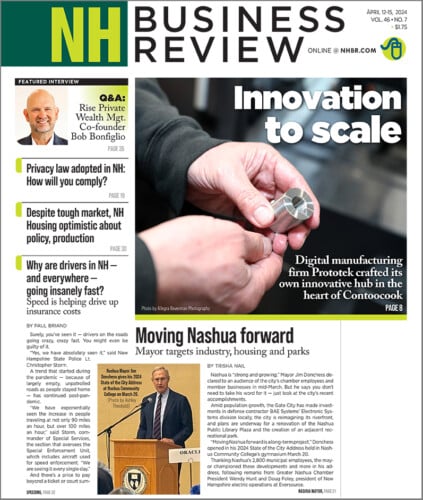Cryptocurrency and the undermining of governance focus of Oct. 9 event
David Noble will discuss how global economies will be impacted by digitalization at World Affairs Council event

Governments have traditionally controlled public behavior through monetary regulation, but cryptocurrency such as bitcoin is challenging these economic levers as well as the centralized power of government, argues David Noble, director of the Peter J. Werth Institute for Entrepreneurship & Innovation Management at the University of Connecticut.
Noble will discuss cryptocurrency, digitization and regulation as it relates to the nation-state as the predominant form of governance on Tuesday, Oct. 9 at the World Affairs Council of New Hampshire’s 2018 Global Business Summit, taking place from 5 to 7:30 p.m. at SNHU in Manchester.
While governments around the world struggle to regulate tech companies such as Google, Facebook and Uber, the inability to regulate cryptocurrencies presents even larger implications as “now you’re talking about the monetary supply,” says Noble.
“When you look at the economies of Venezuela, Turkey, now Argentina [and] Zimbabwe, as their monetary supply has started to death spiral, bitcoin can step in and accelerate that, because now people will covert to bitcoin,” says Noble. “If you look at the transactions in Turkey, bitcoin transactions [have] skyrocketed. Venezuela – one of the only things you have access to is bitcoin. So you start to see central banks’ inability to affect monetary policy because of these cryptocurrencies.”
The valuation of bitcoin depends on the extent to which people are willing to use it for transactions.
“The more transactions, the higher the value,” says Noble. “You need a buyer and seller essentially, and every time you have more buyers, the price of bitcoin goes up.”
As bitcoin gains traction, it will make it harder for governments to form monetary policy to influence consumer behavior as well as appropriately collect taxes to fund government.
Why? Because — excluding third party software that collects records of users’ bitcoin funds and transactions — bitcoin users do not need to have a digital account, meaning there is no record of a transaction.
“The more places you have the opportunity to buy things, the less control the government has,” says Noble, who explains governments can tax when traditional currency is exchanged for bitcoin, or vice versa, but are left powerless when bitcoin and other cryptocurrencies become the predominant form of currency between buyers and sellers.
“Nobody knows anything about the transaction except for me and the person I did the transaction with. When you get to a world where you say ‘this isn’t going away’ and it has value because people will accept it for payments, you quickly lose all monetary control.”
Bitcoin is also a decentralized currency, maintained on severs across the world, making it impossible for governments to clamp down on it. (China, which has banned bitcoin, is the highest user of bitcoin in the world, says Noble.)
The adoption of cryptocurency has signaled how monetary policy is failing to have the same effect it once did.
“Japan, no matter what they do with their economy, they can’t get their inflation in line. Part of that [is because] their economy is digital. You see those connections and the keynote address is to bring together these political, economic and digital connections and say ‘What’s going on? Why are we trying to run countries like it’s 1858?’”
For more information and to purchase tickets, click here.










